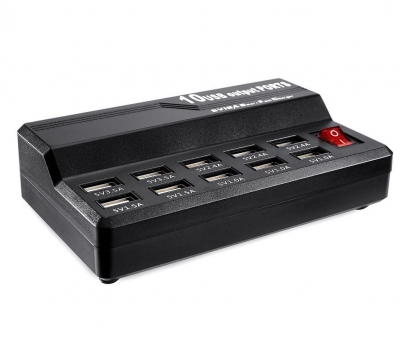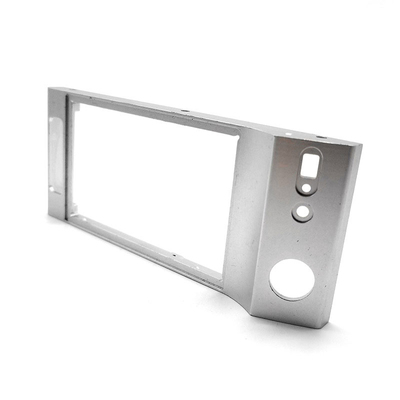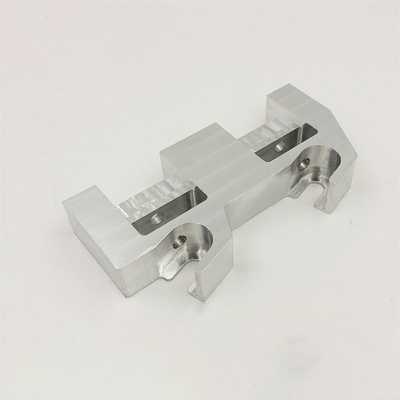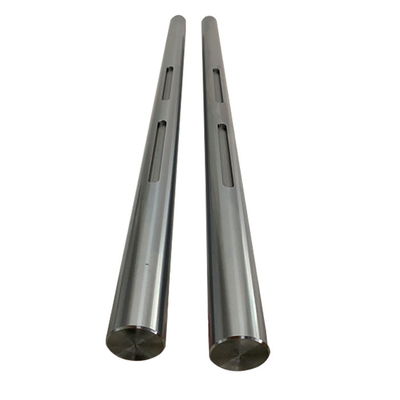6 Kinds of Material Options for the Mold of Sheet Metal Lock
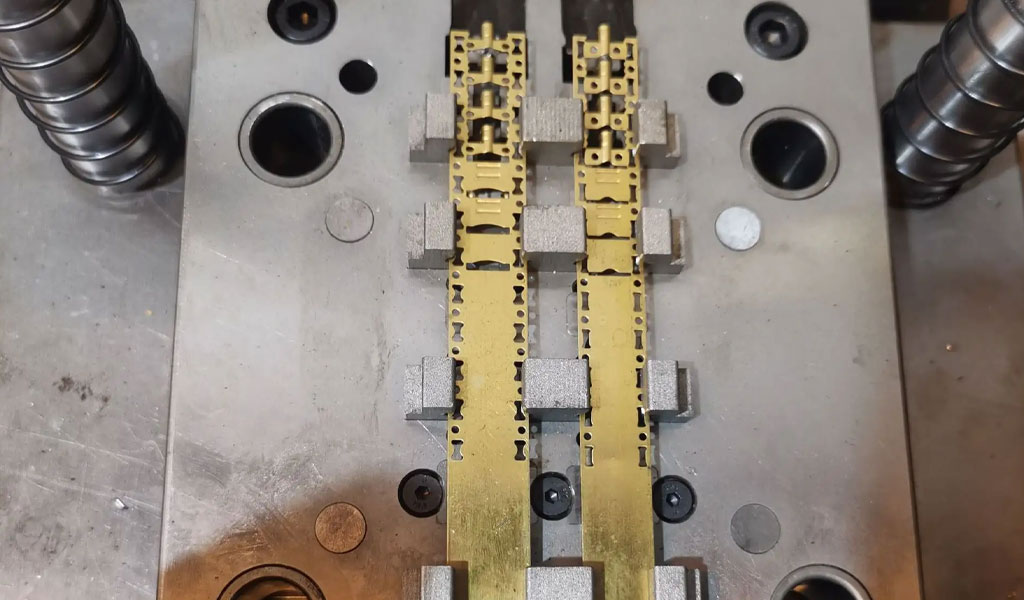
Sheet metal locks are integral components in numerous applications, ranging from residential security systems to industrial machinery. The efficiency and durability of these locks largely depend on the molds used to shape them. The choice of material for these molds is crucial as it affects the production process, the quality of the final product, and the overall cost-effectiveness. This article delves into six prominent material options for the molds of sheet metal locks, examining their properties, advantages, disadvantages, and applications.
1. Tool Steel
Properties and Composition
Tool steels are carbon and alloy steels known for their hardness, resistance to abrasion, and ability to hold a cutting edge at elevated temperatures. They contain various alloying elements such as tungsten, molybdenum, vanadium, and chromium, which enhance their durability and performance in demanding environments.
Advantages
- High Hardness and Wear Resistance: Tool steels are renowned for their exceptional hardness and resistance to wear, making them ideal for producing molds that need to withstand high levels of abrasion and repeated use.
- Thermal Stability: These steels maintain their mechanical properties at elevated temperatures, which is crucial for molds used in high-temperature sheet metal forming processes.
- Toughness: Despite their hardness, tool steels also offer good toughness, reducing the risk of cracking or fracturing under stress.
Disadvantages
- Cost: Tool steels can be more expensive than other materials due to their complex alloying and manufacturing processes.
- Machinability: The high hardness of tool steels can make them challenging to machine, potentially increasing production time and costs.
Applications
Tool steels are widely used in the production of molds for high-precision sheet metal locks, especially in applications where the molds are subject to high stress and wear. Common grades include D2, A2, and M2 tool steels.
2. Aluminum Alloys
Properties and Composition
Aluminum alloys are composed primarily of aluminum, often with added elements such as copper, magnesium, manganese, silicon, or zinc to improve their mechanical properties. These alloys are known for their lightweight nature and good corrosion resistance.
Advantages
- Lightweight: Aluminum alloys are significantly lighter than steel, which can reduce the overall weight of the mold and make handling easier.
- Good Machinability: Aluminum alloys are easier to machine than many other materials, allowing for faster production of molds with complex geometries.
- Corrosion Resistance: These alloys resist corrosion well, which can prolong the lifespan of the mold, particularly in environments exposed to moisture or chemicals.
Disadvantages
- Lower Strength and Hardness: Compared to tool steels, aluminum alloys typically have lower strength and hardness, which can limit their use in applications requiring high wear resistance.
- Thermal Conductivity: While aluminum alloys have good thermal conductivity, they may not perform as well as tool steels in high-temperature applications.
Applications
Aluminum alloy molds are often used in the production of sheet metal locks where lightweight and good machinability are prioritized over extreme wear resistance. They are common in prototyping and short-run production.
3. Stainless Steel
Properties and Composition
Stainless steel is an alloy of iron with a minimum of 10.5% chromium, which imparts excellent corrosion resistance. Additional elements such as nickel, molybdenum, and nitrogen can further enhance its properties.
Advantages
- Corrosion Resistance: Stainless steel's ability to resist corrosion makes it ideal for molds used in environments where exposure to moisture or chemicals is a concern.
- Strength and Durability: Stainless steel offers a good balance of strength, toughness, and hardness, making it suitable for molds subjected to moderate wear and stress.
- Aesthetic Finish: Stainless steel molds can produce sheet metal locks with a high-quality, aesthetically pleasing finish.
Disadvantages
- Cost: Stainless steel can be more expensive than carbon steel and aluminum alloys.
- Machinability: Some grades of stainless steel can be difficult to machine, which might increase production time and costs.
Applications
Stainless steel molds are commonly used in the production of sheet metal locks for applications requiring good corrosion resistance and a high-quality finish, such as in the medical, food processing, and marine industries. Popular grades include 304 and 316 stainless steel.
4. Copper Alloys
Properties and Composition
Copper alloys, such as bronze and brass, are made by alloying copper with other elements like tin, zinc, or aluminum. These alloys are known for their excellent electrical and thermal conductivity, as well as good machinability and corrosion resistance.
Advantages
- Thermal Conductivity: Copper alloys have excellent thermal conductivity, which can help dissipate heat during the forming process, reducing the risk of overheating and thermal deformation.
- Machinability: These alloys are relatively easy to machine, allowing for the creation of intricate mold designs.
- Corrosion Resistance: Copper alloys resist corrosion well, particularly in environments exposed to moisture and chemicals.
Disadvantages
- Strength and Hardness: Copper alloys generally have lower strength and hardness compared to tool steels and stainless steel, which can limit their use in high-stress applications.
- Cost: High-quality copper alloys can be expensive, particularly those with significant amounts of alloying elements.
Applications
Copper alloy molds are used in the production of sheet metal locks where good thermal conductivity and corrosion resistance are important. They are often found in applications involving electrical components or where the mold must dissipate heat efficiently.
5. Cast Iron
Properties and Composition
Cast iron is a group of iron-carbon alloys with a carbon content greater than 2%. It is known for its excellent castability, machinability, and wear resistance. Common types include gray iron, ductile iron, and white iron.
Advantages
- Cost-Effective: Cast iron is relatively inexpensive compared to other mold materials, making it a cost-effective option for many applications.
- Wear Resistance: Certain types of cast iron, such as white iron, offer excellent wear resistance, suitable for high-wear applications.
- Machinability: Cast iron is relatively easy to machine, which can simplify the mold production process.
Disadvantages
- Brittleness: Cast iron can be brittle, particularly gray iron, which limits its use in applications where the mold is subject to high impact or tensile stress.
- Corrosion Resistance: Cast iron has poor corrosion resistance, which can be a disadvantage in environments exposed to moisture or chemicals.
Applications
Cast iron molds are often used in the production of sheet metal locks where cost-effectiveness and wear resistance are prioritized. They are common in heavy-duty industrial applications and short-run production.
6. High-Performance Polymers
Properties and Composition
High-performance polymers, such as machining polyetheretherketone (PEEK) and polyimide, are advanced plastic materials known for their exceptional mechanical properties, thermal stability, and chemical resistance.
Advantages
- Lightweight: High-performance polymers are significantly lighter than metals, which can reduce the overall weight of the mold and make handling easier.
- Chemical Resistance: These polymers resist a wide range of chemicals, which can prolong the lifespan of the mold in corrosive environments.
- Thermal Stability: High-performance polymers can maintain their mechanical properties at elevated temperatures, suitable for high-temperature forming processes.
Disadvantages
- Cost: High-performance polymers can be expensive, particularly those with specialized properties.
- Strength and Hardness: While these polymers have good mechanical properties, they generally cannot match the strength and hardness of metals like tool steels and stainless steel.
Applications
High-performance polymer molds are used in the production of sheet metal locks where lightweight, chemical resistance, and thermal stability are crucial. They are often found in aerospace, medical, and high-technology applications.
Conclusion
The selection of mold material for the production of sheet metal locks is a critical decision that impacts the quality, durability, and cost-effectiveness of the final product. Tool steel, aluminum alloys, stainless steel, copper alloys, cast iron, and high-performance polymers each offer unique properties and advantages that make them suitable for different applications. By understanding the specific requirements of their production process and end-use environment, manufacturers can choose the most appropriate material to achieve optimal performance and efficiency.
Reprint Statement: If there are no special instructions, all articles on this site are original. Please indicate the source for reprinting:https://www.cncmachiningptj.com/,thanks!
 3, 4 and 5-axis precision CNC machining services for aluminum machining, beryllium, carbon steel, magnesium, titanium machining, Inconel, platinum, superalloy, acetal, polycarbonate, fiberglass, graphite and wood. Capable of machining parts up to 98 in. turning dia. and +/-0.001 in. straightness tolerance. Processes include milling, turning, drilling, boring, threading, tapping, forming, knurling, counterboring, countersinking, reaming and laser cutting. Secondary services such as assembly, centerless grinding, heat treating, plating and welding. Prototype and low to high volume production offered with maximum 50,000 units. Suitable for fluid power, pneumatics, hydraulics and valve applications. Serves the aerospace, aircraft, military, medical and defense industries.PTJ will strategize with you to provide the most cost-effective services to help you reach your target,Welcome to Contact us ( sales@pintejin.com ) directly for your new project.
3, 4 and 5-axis precision CNC machining services for aluminum machining, beryllium, carbon steel, magnesium, titanium machining, Inconel, platinum, superalloy, acetal, polycarbonate, fiberglass, graphite and wood. Capable of machining parts up to 98 in. turning dia. and +/-0.001 in. straightness tolerance. Processes include milling, turning, drilling, boring, threading, tapping, forming, knurling, counterboring, countersinking, reaming and laser cutting. Secondary services such as assembly, centerless grinding, heat treating, plating and welding. Prototype and low to high volume production offered with maximum 50,000 units. Suitable for fluid power, pneumatics, hydraulics and valve applications. Serves the aerospace, aircraft, military, medical and defense industries.PTJ will strategize with you to provide the most cost-effective services to help you reach your target,Welcome to Contact us ( sales@pintejin.com ) directly for your new project.
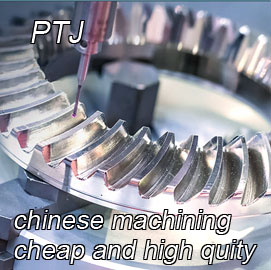
- 5 Axis Machining
- Cnc Milling
- Cnc Turning
- Machining Industries
- Machining Process
- Surface Treatment
- Metal Machining
- Plastic Machining
- Powder Metallurgy Mold
- Die Casting
- Parts Gallery
- Auto Metal Parts
- Machinery Parts
- LED Heatsink
- Building Parts
- Mobile Parts
- Medical Parts
- Electronic Parts
- Tailored Machining
- Bicycle Parts
- Aluminum Machining
- Titanium Machining
- Stainless Steel Machining
- Copper Machining
- Brass Machining
- Super Alloy Machining
- Peek Machining
- UHMW Machining
- Unilate Machining
- PA6 Machining
- PPS Machining
- Teflon Machining
- Inconel Machining
- Tool Steel Machining
- More Material

